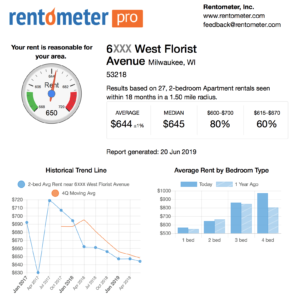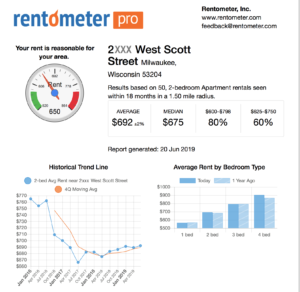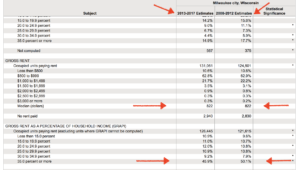[Thank you to Joe Murray for the research]
First, let me preface this that in general, I feel that Governor Evers has done well in the distribution of housing aid during the pandemic.
However, his proposed budget has a number of concerning provisions. And how the heck does Wisconsin allows laws unrelated to spending to be part of a budget is well beyond me.
- If passed, municipalities will be able to restrict how you screen, what you can charge, prohibit showing occupied units, making certain you lose a month or more between tenants, limit charging for damages, limit or prohibit security deposits and allow for rent abatement for minor issues.
- If passed municipalities will also be able to enact their own eviction moratoriums.
- If passed, you will be inhibited from evicting for criminal activity. That should make other renters and neighbors feel safe — Not!
- If passed you can be required to disclose code violations “regardless of whether the landlord has actual knowledge of the violation“
Actual details are below.
——————————
Local landlord-tenant ordinances
Current law prohibits political subdivisions from enacting certain ordinances relating to landlords and tenants. Political subdivisions may not do any of the following:
1. Prohibit or limit landlords from obtaining or using certain information relating to a tenant or prospective tenant, including monthly household income, occupation, rental history, credit information, court records, and social security numbers.
2. Limit how far back in time a landlord may look at a prospective tenant’s credit information, conviction record, or previous housing.
3. Prohibit or limit a landlord from entering into a rental agreement with a prospective tenant while the premises are occupied by a current tenant.
4. Prohibit or limit a landlord from showing a premises to a prospective tenant during a current tenant’s tenancy.
5. Place requirements on a landlord with respect to security deposits or earnest money or inspections that are in addition to what is required under administrative rules.
6. Limit a tenant’s responsibility for any damage to or neglect of the premises.
7. Require a landlord to provide any information to tenants or to the local government any information that is not required to be provided under federal or state law.
8. Require a residential property to be inspected except under certain circumstances.
9. Impose an occupancy or transfer of tenancy fee on a rental unit.
10. Current law also prohibits political subdivisions from regulating rent abatement in a way that permits abatement for conditions other than those that materially affect the health or safety of the tenant or that substantially affect the use and occupancy of the premises.
The budget bill eliminates all of these prohibitions.
Local moratorium on evictions
Current law prohibits political subdivisions from imposing a moratorium on landlords from pursuing evictions actions against a tenant.
The budget bill eliminates that prohibition.
Notification of building code violations
Under current law, before entering into a lease with or accepting any earnest money or a security deposit from a prospective tenant, a landlord must disclose to the prospective tenant any building code or housing code violations of which the landlord has actual knowledge if the violation presents a significant threat to the prospective tenant’s health or safety. The bill eliminates the condition that the landlord have actual knowledge of such a violation and that the threat to the prospective tenant’s health or safety be “significant”; under the bill, the landlord must disclose to a prospective tenant a building code or housing code violation, regardless of whether the landlord has actual knowledge of the violation, if the violation presents a threat to the prospective tenant’s health or safety.
The budget bill eliminates these provisions.
Terminating a tenancy on the basis of criminal activity
Current law allows a landlord, upon providing notice to a tenant, to terminate the tenant’s tenancy, without an opportunity to cure the tenant’s default, if the tenant, a member of the tenant’s household, or a guest of the tenant 1) engages in any criminal activity that threatens the health or safety of other tenants, persons residing in the immediate vicinity of the premises, or the landlord; 2) engages in any criminal activity that threatens the right to peaceful enjoyment of the premises by other tenants or persons residing in the immediate vicinity of the premises; or 3) engages in any drug-related criminal activity on or near the premises.
The budget bill eliminates these provisions.








